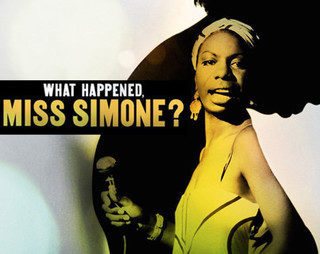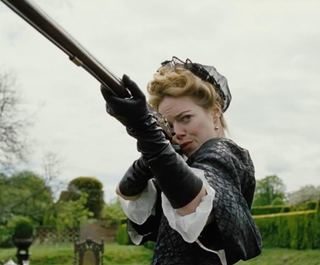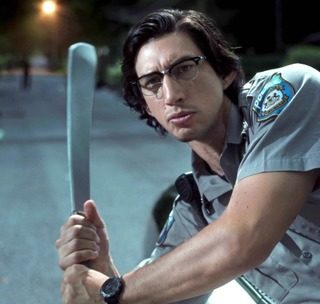History of self-censorship in Hollywood (part 1)
 Censorship is a familiar word for everyone who grew up in the former Soviet republics. It is feared, it is hated, it is reproached, but one of the most terrible of its options is considered self-censorship: when someone seeks to lay straw to fall was soft, or simply eliminates the fall, cutting out a piece of content, sending it for revision or completely letting it on the territory of Russia and neighboring countries, fearing the wrath of the government. However, not only our States suffer from such arbitrariness and such fear. A piece from our colleagues at Vox tells the story of self-censorship in Hollywood — and we’ve translated it for you.
Censorship is a familiar word for everyone who grew up in the former Soviet republics. It is feared, it is hated, it is reproached, but one of the most terrible of its options is considered self-censorship: when someone seeks to lay straw to fall was soft, or simply eliminates the fall, cutting out a piece of content, sending it for revision or completely letting it on the territory of Russia and neighboring countries, fearing the wrath of the government. However, not only our States suffer from such arbitrariness and such fear. A piece from our colleagues at Vox tells the story of self-censorship in Hollywood — and we’ve translated it for you.
Less than two months before the September release, Universal Studio withdrew the rental of the film “the Hunt” indefinitely. The plot of the film, in which the “elite” hunts for “ordinary” people for entertainment, received a wave of criticism from left-wing social media accounts-it was seen as an attempt to elevate the protagonists representing the right movement.
And a couple of hours after the film outraged Fox News anchor Laura Ingraham, one very loyal viewer of this channel, sitting in the White House, hastened to tweet about Hollywood, claiming that “they create violence and we are accused of it.” And, most likely, he wrote just about “Hunting”. And the message itself is, of course, peculiar, especially given that it comes from a man squandering his favorite film — “Blood sport” van Damme – on the most violent scenes.A day later, Universal announced that it was not going to release ” the Hunt “(originally the film was called “Red vs. blue”). Carefully chosen words, the Studio said: “we support our artists and will continue to create films in partnership with bright and progressive content creators, for example, with those associated with satirical social thrillers, but we understand that now is not the best time to release this film.” And, according to the statement, the film may still be released in the future.Probably, this decision was made by the Studio in connection with the recent shootings in El Paso and Dayton (especially since the cause of the shooting in El Paso may have been political views). But even if the coincidence is accidental (and that’s a very big “if”), even if the plan to postpone the film came before trump decided to print that tweet — in the public’s eyes, the coincidence is too close to the real reason.Yes, movies are periodically postponed because of some tragic events, but that a major Studio closed the lock expensive release after the President kind of tweeted about it? This is the first time. And the precedent it sets — where major politicians can theoretically ban a release if they hear anything about a trailer for a movie that no one else has seen, on TV — it brings state censorship closer, threatening the freedom guaranteed by the First amendment.And Hollywood has always been afraid of state censorship, and Universal’s decision to censor itself is not unique. To be honest, the whole history of Hollywood is full of cases of self-censorship: it is the history of an industry that almost from its birth has used all possible methods to keep the government away from itself (and from its income). But Universal’s response to pressure-direct or indirect — could be a harbinger of change.Almost a century ago, Hollywood decided to censor itself, censorship is best described as the state’s suppression of citizens ‘ freedom of speech in the public space, based on rules set by those in power to achieve their goals. This type of censorship, in General, was not part of the American film industry-unlike other world markets.But in order to keep the state at Bay, Hollywood used self-censorship almost from the beginning.Back in 1922, major Hollywood studios came together and created an organization that would become known as the MPAA — “motion picture Association of America”. Most people know the MPAA as an office that gives films age ratings (for example, R or PG). It is not a state — owned company-it is independent. At the time of its inception, its members created 70-80% of all movies in the United States, and its first President was communications Minister will Hayes.But the main thing is why such an organization was created in principle. Seven years before the MPAA, in 1915 in the Supreme court case of Mutual Film Corp. V. Industrial Commission of Ohio ” the court ruled that the film industry is a business, not an art, and therefore the First amendment, which guarantees freedom of speech, does not apply to cinema.The decision opened the door to censorship in the film industry — meaning the government could seize control of the word and free vision of artists. Congress began considering the creation of a national censorship Committee, similar to the small, local film-oriented committees that began to emerge across the country.The industry itself was torn apart by off-camera scandals, one of which involved popular comedian Fatty Arbuckle. In 1921, he was a guest at the party in Hollywood at which actress Virginia RAPP died — and he was blamed for her death. This episode was the first major scandal in Hollywood, and many others soon followed. And these stories, often overblown by the press, reinforced the impression that Hollywood somehow had to be regulated.In the era of silent films and the beginning of the era of cinema with sound, the ethical public began to Express concerns about overly sexualized and violent content (and no: that this period fell on Prohibition, passed in 1922 and repealed in 1933 — is not a coincidence). Studios were afraid that Hollywood’s dirty reputation would not just hit revenue, but also undermine the interest of potential investors.So the task of the organization, initially called the “Association of producers and distributors of films of the United States” (MMPDA), in the first place, was to “clean up” Hollywood. Shortly after founding the organization, Hayes and others reported that they would give the industry an ” ultimatum.” We’ll have to clean up the dirt on the screen — or else…They justified their mission solely on moral and ethical grounds.”Mr. Hayes decided about three weeks ago that he should take a position in which he guarantees the public “clean” films, ” the New York Times said in a June 5, 1922, op-ed. The note added that the methods of “purging” included “strict censorship in every production company” — including Hayes’s own company.”The films currently in production, as well as those that will be released in the future, will be a confirmation of either our commitment and honesty, or our insolvency; they will prove either our ability to influence the evil sitting inside us, or our inability to conduct business,” the Times quoted Hayes as saying. He went on to say that Hollywood’s most important task is “to show vividly in future films the struggle to introduce and maintain the highest moral and artistic standards.”In other words, the video series and themes will be clean even to the creak.The list of rules created by the organization was called the “Code of the American Association of film companies” or “Hayes Code”. It appeared in 1930, but it began to plant only in 1934. The years before planting are often referred to as “pre — Codex,” and in that era, filmmakers sought to push the boundaries of what they showed on screen-from street riots and drug addiction to sexualized content. In our time, many of those films would be called “thematic content,” but in those years, no single classification system existed.But at some point the code became a kind of confirmation that the film corresponding to it will be accepted. In almost all cases, a film produced by MMPDA members and released in member cinemas has been approved by the MMPDA code compliance division.This means that for several decades it was impossible to show some things on the screens-otherwise the film would not have been missed in Hollywood. In other words, it would be censored by the industry itself. The list of prohibited content in the Hayes code is very long, but here are excerpts from it— – you Can not show the result of sex, that is, pregnancy and the process of childbirth are prohibited.- Crimes and bad behavior in the end should be punished.— You can not use the word ” virgin “(or”virgin”).— It is impossible to offend religion, and it most often meant that in films religion in principle was not — its image in any situation could be interpreted as an insult.— You can not show how the characters drink alcohol, unless it requires the plot — because the film is a cautionary tale, where the drinking character will get what he deserves.- It is impossible to describe plots in which the main engine is revenge, in modern realities (and it became one of the reasons of blossoming of westerns-they were considered as historical films).— You can not show ethnic or homosexual relationships (thanks to this, it was easier for studios not to hire non-white actors — for them there were no roles).— The us flag should be treated with the utmost respect.There were many other prohibitions in the code, but as you can see, its requirements range from logical to offensive. Due to some points, the original versions of films such as” Casablanca ” had to be seriously cut and rewired for release.Some producers have done their best to outwit the code, and the stories are very entertaining. Others bowed obediently.But self-censorship is only effective if there is no great dollar motivation. Some producers began to take risks and release their films without MMPDA approval-especially after a while, when the audience woke up the appetite and they were drawn to the” not so ” pictures. For example, the Central theme of Otto Preminger’s 1955 film “The man with the Golden hand” is drug addiction prohibited by the code.




